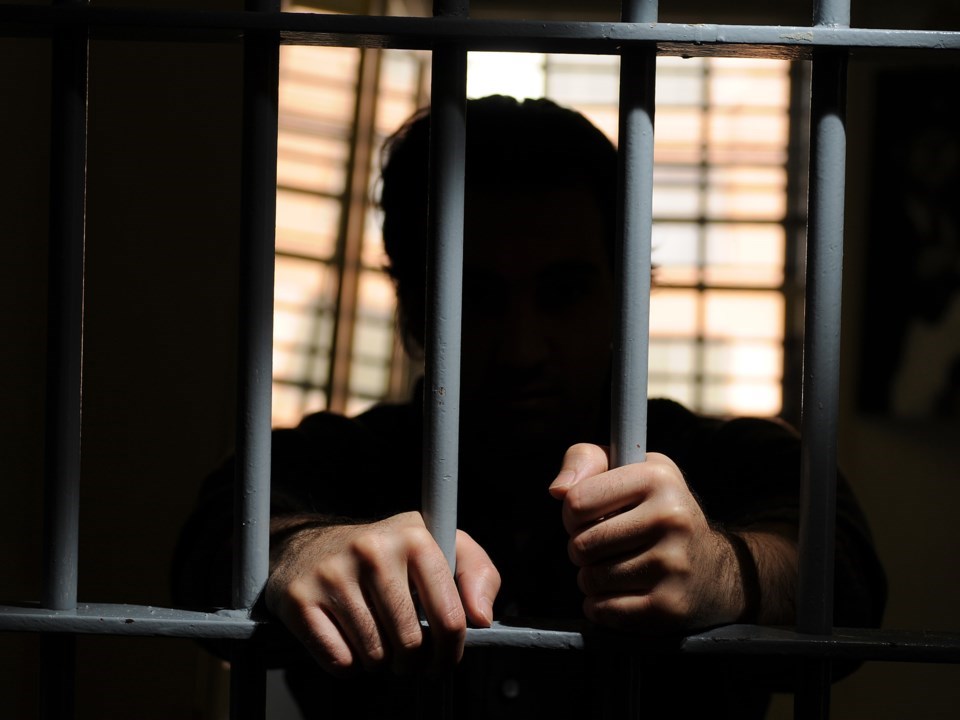Any rational, law-abiding citizen would conclude the same.
Peeace and two other men, including one carrying a handgun, barged in to a suite in a single-room-occupancy hotel in the Downtown Eastside and violently attacked two people with a machete.
One victim required 40 stitches to repair a cut to her leg. Her boyfriend had his thumb almost cut off and required surgery to repair tendons and nerves.
Police, who pieced the crime together from video footage and witness statements, didn’t catch up with Peeace until Sept. 8, 2020. That’s when officers responded to a 911 call of a man ripping branches from a tree in an attempt to make a fire.
Peeace, who had a previous order prohibiting him from possessing firearms, prohibited weapons and knives, was carrying a duffel bag that contained a sawed-off semi-automatic rifle and a sheathed machete.
He also had a folding knife in his pocket and was under the influence of drugs at the time, according to the officers who arrested him.
Two weeks ago, Peeace was sentenced to 40 months in prison.
End of story?
Not if you want to know the how and why Peeace ended up as a violent, drug-addicted criminal.
The narrative, sadly, has become an all too common one heard by as the parade of Indigenous men like Peeace — all with troubled childhoods and little formal education — come before him in his courtroom.
Mistreatment of Indigenous persons
Last year, Harris sentenced 26-year-old Thomas Joseph Lloyd Brown to 30 months in prison for crimes associated to drugs. The previous year, he sentenced 37-year-old Michael Richard Rousseau to two years less a day for robbery and other crimes.
What he said about Brown was depressing: “In fact, a review of his background and history strongly suggests that he was doomed to face significant struggles even before his birth. Specifically, the historical mistreatment of Indigenous persons placed Mr. Brown on the roadway to criminal involvement and even gave him a push.”
Similarly, Rousseau’s life never got off to a promising start.
When he was three years old, his parents divorced. His mother was an alcohol and gambling addict. As a kid, his older brother beat him and burned him with cigarettes. A male babysitter sexually abused him.
Rousseau has been diagnosed with Hepatitis C, ADHD, anxiety, depression and PTSD.
There are more disturbing details of Brown and Rousseau’s childhoods, which I have previously chronicled and are not unlike Peeace’s upbringing, which Harris described as “chaotic, horrific and it saddens one to think about the circumstances of his early life.”
In brief: His parents separated when he was two years old, his father struggled with substance abuse, his mother killed herself when Peeace was six. His maternal aunt introduced him to crack cocaine at 11 and encouraged him to steal and shoplift.
By 16, Peeace was living on the streets, using drugs and a member of The Fresh Off the Boat gang in Calgary. Peeace became an enforcer. Ultimately, he fell out of favour with the higher-ups in the gang and fearing for his life, he fled to Vancouver.
Now he has joined an inmate population that is overrepresented by Indigenous men and growing each year, as the Correctional Investigator of Canada revealed in January 2020.
“Four years ago, my office reported that persons of Indigenous ancestry had reached 25 per cent of the total inmate population,” Dr. Ivan Zinger said. “Today, sadly, I am reporting that the proportion of Indigenous people behind bars has now surpassed 30 per cent.”
Why? How?
Ask Peeace, Brown and Rousseau.
Then ask governments, social services and reconciliation-driven politicians what they’re doing about it.
@Howellings



